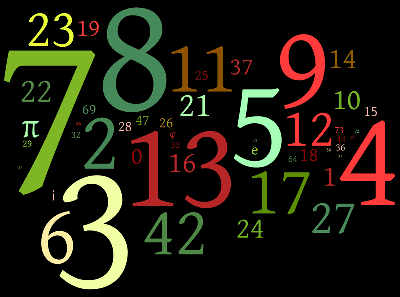The History of Numerology
Numerology is the belief and study of the mystical significance and symbolism of numbers. It has a long and fascinating history that spans various civilizations and cultures throughout the world. While the exact origins of numerology are uncertain, its roots can be traced back to ancient civilizations such as Babylonia, Egypt, China, and India.
Babylonian Numerology:
One of the earliest known forms of numerology can be found in ancient Babylonia, where scholars assigned numerical values to letters and used them to make predictions and interpret events. The Babylonians believed that numbers had divine meanings and that they could be used to reveal hidden information about the world.
Egyptian Numerology:
The ancient Egyptians also had a strong interest in numbers and their mystical properties. They associated numbers with various gods and goddesses and believed that they held the key to understanding the universe. The Egyptians used numerology in conjunction with astrology to gain insight into a person’s character, destiny, and future.
Chinese Numerology:
In Chinese culture, numerology is deeply rooted in the ancient philosophical system of Yin and Yang and the Five Elements (Wood, Fire, Earth, Metal, and Water). Chinese numerology, known as “Ba Zi,” is based on the principles of balancing these elements and analyzing their interactions with an individual’s birth date and time. It is used to determine personality traits, compatibility, and auspicious dates for important events.
Indian Numerology:
Numerology has a rich history in India, where it is closely tied to Vedic astrology and spiritual practices. In Indian numerology, each number is associated with a particular planet, and these planetary influences are believed to shape a person’s destiny. The practice of assigning numerical values to letters in names and analyzing their sums is known as “Chaldean numerology” and is widely used in India.
Pythagoras:
Pythagoras believed that all the universal truths are based on mathematics. According to him, the entire universe was formed with different patterns of mathematics. He was a believer that each number corresponds to a different energy pattern or frequency. Many prominent philosophers embraced the view of Pythagoras and, thus, the study of Numerology became more prevalent.
Modern Numerology:
There are three types of Numerology. Those are divided due to them interpreting the numbers distinctly. Those are The Pythagorean or “Western” Numerology, The Chaldean Numerology, and the Kabbalah Numerology.
Numerology gained renewed popularity in the West during the late 19th and early 20th centuries, thanks to the works of several occultists and mystics. Notable figures include Pythagoras, who is often credited with developing the Pythagorean system of numerology, and Dr. Julian Stenton, who introduced the concept of birth numbers and life paths.
Modern numerology typically involves reducing names, birth dates, and other significant numbers to single digits or master numbers through various mathematical calculations. These reduced numbers are then interpreted to gain insight into personality traits, compatibility, life paths, and even predict future events.
Hits: 65
